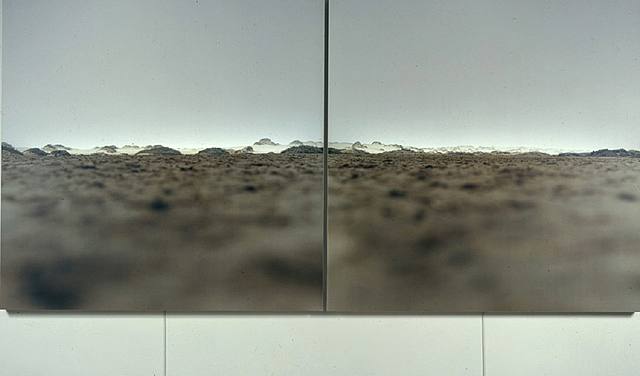 SEX
SEX In Which We Think About Both Of The Men
 Thursday, July 28, 2016 at 1:38PM
Thursday, July 28, 2016 at 1:38PM  Elisa Sighicelli, Santiago: Curtain Tryptich, 2000
Elisa Sighicelli, Santiago: Curtain Tryptich, 2000
The Object of Their Affections
by ADA KAPLAN
I've spent a lot of time this week thinking about the fact that I love two men, and that two men love me. I’ve actually been thinking too much about this fact for the last two years. There are good weeks and bad weeks, and this was an eventful one. For one thing, they’re both in L.A. now, and my intention for the new year was to free myself at last of this complicated and heartbreaking binary, but everything I do seems to make things worse. One of these men was my boyfriend for many years, and then neither of them were, and then the other man was, and now neither of them are again. This is because my latest solution is to “be on my own.” So I suppose I am single, though I wonder whether it’s possible to feel less so.
I have illusions, that I’m concentrating on my work, that I don’t need a man, that I am independent. I must uphold these illusions in order to believe in myself, as something other than the center of this enduring amorous sideshow. I call it a sideshow because it seems from the outside that’s how it must look, but to me, it’s my life. And I need my life to be about more than being the object of these affections, even if, truly, it isn’t.
I’m ashamed. Whatever women may think, it doesn’t feel good to listen to a man you love and respect beg or cry, or tell you to pick him because he brought a superior toy to your cats. What it does is make you despise yourself. It’s the fault of a weak and indecisive mind, possessed of delusions of intellect and ambition, but moored in that loathsome covenant of female want. How important, really, is it to feel beautiful? To be loved? Important enough to ravage the pride of two strong, kind men? They’ve chosen to remain in the situation, and I have never lied to either of them, but I implicate myself.
So far being alone has meant trying to explain why. It’s something about feeling responsible for the whole thing, and shouldering so much love, that I’ve forgotten how love should feel, when it isn’t jealous or concerned with others, or sad. There was a day around Christmastime, when I made my alone decision, that I felt my life regain a sense of levity. I actually jumped up and down in my childhood room. This only lasted a day. Untitled (The Party Is Over)Being alone has meant buying an old lady roller cart so that I can wheel groceries into my apartment and a rubber gadget that allows me to open jars on my own. Being alone has meant failing at being alone, and convincing myself that I’m not at all interested in sex. This is mostly true, but there’s still a real part of me that cares. And if I cave and spend the night at the most recent boyfriend’s house, then I will pass the morning, which I intended to spend writing and working, because I am a serious independent woman whose priority is working and writing, as I did today, googling the 22-year-old girl who told him she wants to “bone down,” whom I've met briefly, only to be reminded by a fancy magazine that she is the daughter of a big producer, and prefers ballet flats to heels.
Untitled (The Party Is Over)Being alone has meant buying an old lady roller cart so that I can wheel groceries into my apartment and a rubber gadget that allows me to open jars on my own. Being alone has meant failing at being alone, and convincing myself that I’m not at all interested in sex. This is mostly true, but there’s still a real part of me that cares. And if I cave and spend the night at the most recent boyfriend’s house, then I will pass the morning, which I intended to spend writing and working, because I am a serious independent woman whose priority is working and writing, as I did today, googling the 22-year-old girl who told him she wants to “bone down,” whom I've met briefly, only to be reminded by a fancy magazine that she is the daughter of a big producer, and prefers ballet flats to heels.
He asks me what he should do about other women. I want to scream, but I say I can’t tell him what to do. Why? he says. They always ask me why. He only wants to be with me, he says, why can’t I just be with him. It’s a question I’ve heard from each side many times. The answer is because I love them both. And because I don’t have the heart, because I lack the strength, to choose, I have to say no.
After I spent the morning browsing hipster photo blogs, I cried. I looked at the manuscript of my book and wanted to burn the thing for being so futile and uninteresting. I imagined my life, and their lives, unfolding. They were married to beautiful women in ballet flats. They were carrying toddlers on their shoulders. I was glad for them, glad they were free of me, but also reminded of the scene in Legends of the Fall when Susannah sees Tristan with his happy family at the state fair, and goes home, sits down at her lovely vanity, chops her hair off, and shoots herself in the head.
I imagine myself married to one of these men, and seeing the other at the state fair with his happy family. It’s bad. Then I switch them, and it’s just as bad, Even if they can’t have me, I know they want me to live.
Ada Kaplan is a contributor to This Recording. She is a writer living in Los Angeles.








































